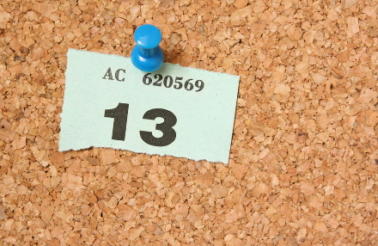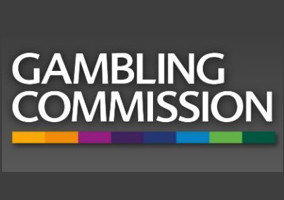The Gambling Commission has said that society lotteries will have to comply with new rules banning credit cards from being used to pay for gambling online, despite opposition from the sector.
The regulator has published new guidance to clarify what the credit card ban on gambling means for society lotteries.
The ban was announced on 14 January and the Commission has said that it has since received “a number” of queries from society lotteries on the topic.
Despite sector associations arguing that an exception should have been made for all society lotteries, the ban applies to “all online and offline gambling products with the exception of non-remote lotteries”. It will be effective from 14 April.
Guidance on how to comply
The new guidance stresses that the ban applies to all types of remote lottery licences and to all remote payment methods. Specifically, this means that credit card payments for lotteries cannot be accepted online, on the phone or via text, email or fax.
The ban applies to both new and existing customers and for both lottery subscriptions and one-off entries.
Debit card payments are still an accepted payment method, but organisations should make sure they are able to distinguish them from credit cards. The Commission suggested that the first six or nine digits of a payment card’s number should allow the merchant or acquirer to establish whether a card is credit, debit or prepaid, and to identify the issuing bank.
The Commission also encouraged society lotteries to get in touch with their e-wallet providers (such as PayPal) to make sure they are prepared to enforce the ban.
Public consultation
The Commission held a public consultation on the ban between August and November 2019. Twelve society lotteries replied opposing the ban on credit cards for lottery payments (although they were in favour of it for betting and gaming).
They “argued that lotteries are less frequent events than for casino gaming, for example, and therefore that the potential rate of monetary loss to consumers is very low.”
Sector associations the Lotteries Council and the Hospice Lotteries Association opposed intervention for all lotteries on the grounds that “problem gambling among the sector is low”.
David Griffiths, chair of the Hospice Lotteries Association, said: “Our big concern is that they have taken out a method of payment that is among the most secure available, without citing any evidence that there is a specific problem with remote society lotteries.
“We have socially responsible limits in place for charity lotteries established by the Gambling Act, at or around 5 x £1 players a week. We believe society lottery are much lower-risk compared to other forms of gambling and are not as obviously attractive to those with gambling problems.
“Finally, there has been a big focus on credit cards and little scope or recognition for other types of lending, such as payday loans or unregulated loans. We believe credit providers are better placed than gambling operators to deal with the gambling overspending on a much more organic level.”
In the consultation response, the Commission said that while “acknowledging” these responses, “it would be anomalous to omit remote lotteries from a ban, given the risks posed by gambling with credit cards”.
It added that according to its data, individuals who are at risk of harm from gambling could use credit cards on a range of platforms and products, including lotteries.
“While society lotteries are generally associated with lower incidences of harmful gambling, and many lottery opportunities might ostensibly present a lower risk due to the infrequency of events, those individuals who are at risk of harm from credit card gambling may be using their cards across multiple gambling platforms - and accruing more debt than they can afford to repay - across a range of operators and products including lotteries.”
It also said that about half of all the respondents were in favour of extending the ban to remote lotteries.
Among these were “individuals who had experienced harm from credit card gambling, members of the public and treatment providers for gambling harm”.
“Many were of the view that lotteries are still a form of gambling where the odds of winning are long, and that allowing any form of gambling on credit will be unhelpful in minimising harm.”
|
Related articles











